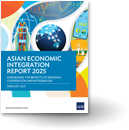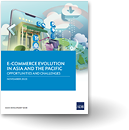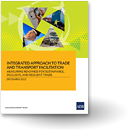Historic accord on government procurement
After more than 10 years of negotiations, the parties to the Government Procurement Agreement (GPA) successfully reached consensus on a revised set of rules during the WTO’s eighth ministerial meeting in Geneva last December 2011. Key outcomes of the negotiation are increased transparency in rules, new market access coverage, and facilitated accession procedures for developing countries.
The GPA governs trade in public procurement for the member states who have signed the agreement. These countries include Armenia; Canada; European Union; Hong Kong, China; Iceland; Israel; Japan; the Republic of Korea; Liechtenstein; Aruba, the Netherlands; Norway; Singapore; Switzerland; Taipei,China; and the United States.
The revised GPA subjects the procurement procedures of member states to more transparent rules to ensure fairness and clarity in the bidding and award of government contracts. Greater transparency in the procurement process is important in fighting corruption and ensuring efficient use of public resources to address the need for fiscal discipline. The revised GPA is also expected to inject much needed stimulus to the global economy because the increase in sectors and entities now included in the agreement is projected to liberalize $100 billion in public contracts, in addition to the $500 billion already covered by the agreement.
The new GPA covers more government departments and ministries, and more goods and services. As a result, it provides better market access opportunities for foreign firms bidding for government procurement contracts. For instance, the EU and the US increased access to their central-level entities as well as major US Federal agencies such as the Social Security Administration and the Transportation Security Administration. Also, Canada granted access to the procurement processes of its provinces and territories. The Republic of Korea offered access to railway and urban transport procurement while Japan provided access to public-private partnerships, infrastructure projects, and public procurement of railway equipment - a key market for the EU.
The revised GPA encourages and facilitates accessions of developing country members of the WTO such as the People's Republic of China. The accord provides special considerations to the development, financial and trade needs of developing countries in negotiations to, and in the implementation and administration of, the revised GPA. At present, 20 developing countries are observers in the GPA committee; 9 of them are seeking accession to the GPA (i.e. Albania; People's Republic of China; Georgia; Jordan; Kyrgyz Republic; Moldova; Oman; Panama; and Ukraine).
No enforceable commitments were reached on critical points such as removal of small and medium-sized enterprises (SMEs) from exclusion of GPA coverage. Such SME exclusions are adopted by the US, Republic of Korea, Japan and other GPA countries. To address this, the Parties agreed on future work programs that endeavor to support SMEs while monitoring exclusions and restrictions to achieve sustainable procurement.




